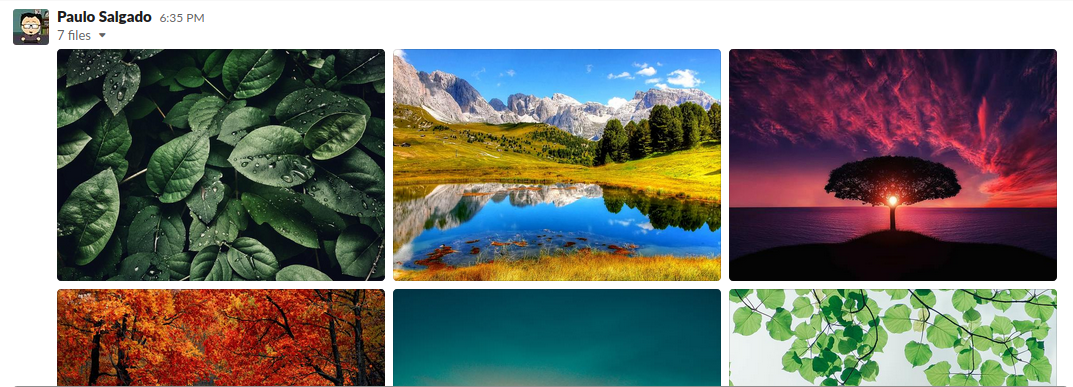Here is how I did the same thing using Go via the slack-go/slack library:
func uploadImagesToSlack(images []string, token string) ([]string, error) {
api := slack.New(token)
permalinkList := make([]string, 0, len(images))
for i, base64Image := range images {
imageData, err := base64.StdEncoding.DecodeString(base64Image)
if err != nil {
fmt.Printf("Error decoding image %d: %v\n", i, err)
continue
}
params := slack.FileUploadParameters{
Filename: fmt.Sprintf("image_%d.png", i+1),
Filetype: "auto",
Title: fmt.Sprintf("Image %d", i+1),
Content: string(imageData),
}
fileInfo, err := api.UploadFile(params)
if err != nil {
fmt.Printf("Error uploading file for image %d: %v\n", i+1, err)
continue
}
permalinkList = append(permalinkList, fileInfo.Permalink)
}
return permalinkList, nil
}
func postGalleryToSlack(permalinkList []string, channel, token string) error {
api := slack.New(token)
messageText := ""
for _, permalink := range permalinkList {
textSingleLink := fmt.Sprintf("<%s | >", permalink)
messageText = messageText + textSingleLink
}
channelID, timestamp, err := api.PostMessage(
channel,
slack.MsgOptionText(messageText, false),
)
if err != nil {
return err
}
fmt.Printf("Message successfully sent to channel %s at %s\n", channelID, timestamp)
return nil
}
The images were retrieved in a previous function and then encoded into base64 strings using base64.StdEncoding.EncodeToString(), then this function is called which loops over the strings, decodes them, uploads to slack without posting, grabs the permalinks from the api.UploadFile() method, then posts them all in a single message which gives us the gallery format.

